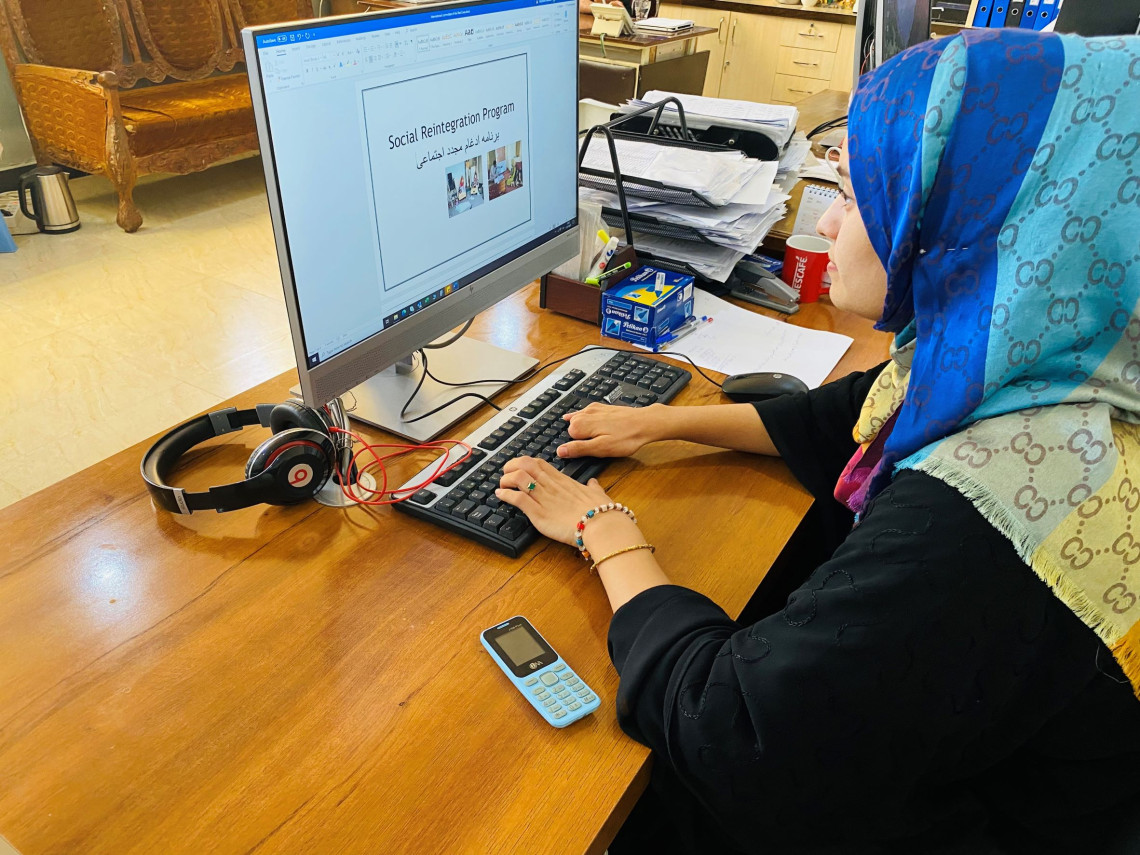
Afghanistan: A changed perspective to disability helps her inspire others

She neither wanted to answer any questions about why her hand was the way it was nor meet anyone else with a disability and associate with them. When a friend suggested reaching out to the International Committee of the Red Cross (ICRC) and getting help through their vocational training programme for people with disabilities, she resented that suggestion too and turned it down.
But her perspective changed completely when Haidary eventually did reach out to the ICRC and became part of a social reintegration programme at the physical rehabilitation centre in Mazar-i-Sharif. Early this year, she marked a special milestone and joined the centre as a social and education officer. Now she talks eagerly about her disability, the challenges she faced, the opportunities that opened up for her and a growing passion for helping other people with disabilities. She hopes that her story will inspire others to step out of their isolation and pursue their dreams.
Hurt by people's opinions
I lost my father when I was only a child. My mother took care of me and my three brothers and six sisters in the best way that she could. Despite all her challenges, I think she gave me special attention because of my disability. I never asked her why my hand is not like others'. I felt the question would upset her. Though life went on, people's questions and opinions about my disability used to hurt me deeply and I would try to avoid them.
The ICRC became like a family
In 2012, when I was in eighth grade, Latifa, a neighbour who had suffered burn injuries and lost four fingers, told me about the help she received from the ICRC and that I could also learn tailoring and earn a living. But I did not want to be around people with disabilities, so I kept rejecting the idea till we ran into financial trouble and there was no way out. In 2014, I went to the ICRC's physical rehabilitation centre in Mazar-i-Sharif with a lot of hesitation. But my experience was nothing like I expected. All the staff, right from the security guards to the most senior officials, greeted me with warm smiles and boosted my confidence with encouraging words. I joined the social reintegration programme and learned tailoring. The ICRC also helped me pursue education and get a bachelor's degree in my favourite subject – journalism. They paid for my transport, books and notebooks and also helped me to do other short-term courses to develop further. The ICRC became like a second family for me.
From rejection to success
As a student, I tried to find a job to support my family but despite having the required skills, I was rejected on several occasions because of my disability. Finally, after my graduation, I applied for a job at the ICRC and passed the test and the interview. My goal is to give hope to others like me and help them integrate into society, especially girls.
Helping children look beyond their disabilities
I do home visits to teach children with severe physical disabilities who cannot go to school. Nawid, Urfan and Mahbooba, three of the students that I teach at home, call out with joy when they see me. I love their excitement and it makes me work harder so that they never despair because of their disability.
Since I started working with the ICRC, living with a disability has taken on a different meaning for me. I am full of hope and positive energy now, which I try to transfer to other disabled people so that they will also come out of their isolation and build their lives. When I hand out coloured pens and booklets to my students, my desire is that it would spark new dreams in them so that they can study and inspire other people too.
Physical rehabilitation programme in Afghanistan
The ICRC's physical rehabilitation programme, which was one of our first activities in the country, began in Kabul almost 35 years ago. Now, there are a total of seven ICRC-run physical rehabilitation centres – in Kabul, Gulbahar, Herat, Jalalabad, Mazar-i-Sharif, Faizabad and Lashkar Gah.
The physical rehabilitation of people with disabilities is just the first step in their reintegration into society. Recognizing this, the ICRC's physical rehabilitation programme also works to ensure that their rights and their access to education, employment, microcredit loans, vocational training and sports are protected.
Since the beginning of the year, the following services were provided:
